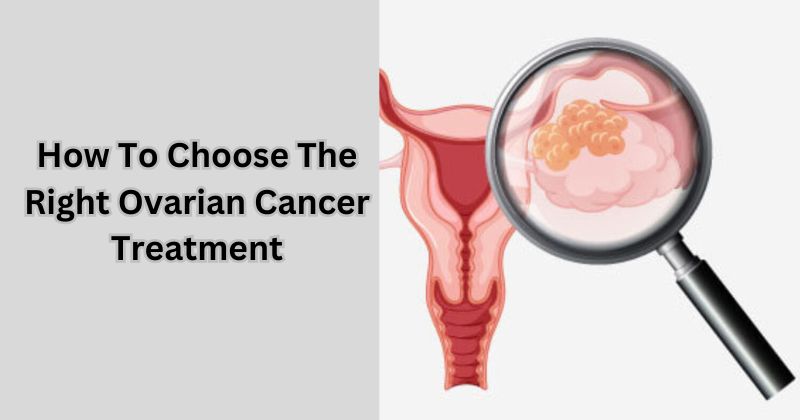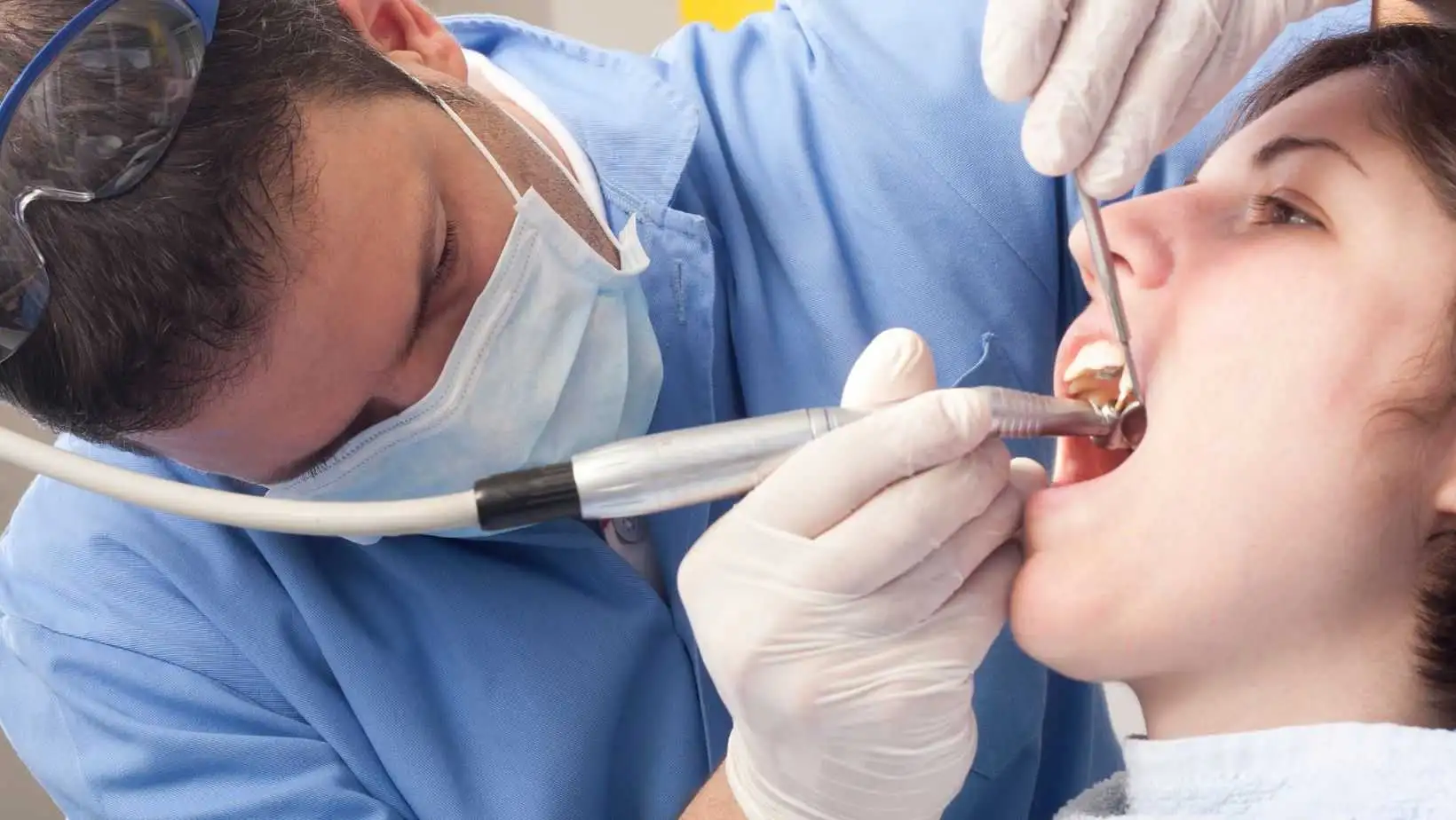Ovarian cancer is one of the most common types of cancer affecting women worldwide. It occurs when malignant cells develop in the ovaries, which are responsible for producing eggs and hormones. The challenge with ovarian cancer is that its symptoms often go unnoticed until the disease has progressed significantly. As a result, early detection and prompt treatment are critical in managing the condition effectively. When it comes to ovarian cancer treatment, there are several options available, and choosing the right treatment can significantly impact a patient’s chances of recovery. In this blog, we will explore how to choose the right ovarian cancer treatment, considering various factors such as the stage of the disease, available treatments, and ovarian cancer treatment costs in India.
Understanding Ovarian Cancer
Before diving into treatment options, it is essential to understand the different stages of ovarian cancer. Ovarian cancer is classified into four stages based on the extent of the spread:
- Stage I: Cancer is confined to one or both ovaries.
- Stage II: Cancer has spread to other pelvic organs.
- Stage III: Cancer has spread to the abdomen or lymph nodes.
- Stage IV: Cancer has spread beyond the abdomen to distant parts of the body.
The treatment approach for ovarian cancer typically depends on the stage at which it is diagnosed. Early-stage ovarian cancer may require less aggressive treatment, while advanced ovarian cancer treatment options may be more intensive.
Key Treatment Options for Ovarian Cancer
When it comes to choosing the right ovarian cancer treatment, several factors must be considered, such as the stage of cancer, the patient’s overall health, and the treatment goals. Here are the primary treatment options for ovarian cancer:
1. Surgery
Surgery is often the first step in treating ovarian cancer, especially if the cancer is confined to the ovaries or pelvic region. The goal of surgery is to remove as much of the cancerous tissue as possible, which may involve removing one or both ovaries, the fallopian tubes, the uterus, and nearby lymph nodes. In some cases, a surgical procedure called “debulking” is performed to reduce the tumor size, which can improve the effectiveness of chemotherapy.
- For early-stage ovarian cancer, surgery alone may be sufficient for treatment.
- For advanced ovarian cancer, surgery may be followed by other treatments like chemotherapy to target any remaining cancer cells.
2. Chemotherapy
Chemotherapy is a common treatment for ovarian cancer and is usually recommended after surgery to eliminate any remaining cancer cells. Chemotherapy drugs work by attacking and killing fast-growing cancer cells throughout the body. These drugs are often given intravenously, although they can also be administered through the abdominal cavity in a procedure called intraperitoneal chemotherapy.
Chemotherapy is effective in treating ovarian cancer, especially in the advanced stages. However, it comes with side effects such as hair loss, nausea, and fatigue, which can impact the patient’s quality of life. Advances in ovarian cancer treatment have focused on minimizing these side effects while improving the overall efficacy of chemotherapy.
3. Targeted Therapy
Targeted therapy is a newer form of treatment that works by targeting specific molecules involved in the growth and spread of cancer cells. Unlike chemotherapy, which affects all rapidly dividing cells, targeted therapy specifically targets cancer cells while leaving healthy cells unharmed.
For ovarian cancer, targeted therapies may be used in combination with chemotherapy or as a stand-alone treatment in advanced stages. These therapies often target the genetic mutations or proteins that help cancer cells grow and divide. Some commonly used targeted therapies for ovarian cancer include:
- PARP inhibitors: These drugs block an enzyme that cancer cells need to repair their DNA, making them more susceptible to damage.
- Anti-angiogenesis drugs: These drugs inhibit the formation of new blood vessels that supply the tumor with nutrients, helping to slow down its growth.
4. Immunotherapy
Immunotherapy is an innovative approach to cancer treatment that boosts the body’s immune system to recognize and attack cancer cells more effectively. Immunotherapy is still being researched for ovarian cancer, but some treatments have shown promise in clinical trials, particularly for patients with advanced ovarian cancer.
Immunotherapy works by stimulating the immune system or by introducing synthetic immune system components that can target cancer cells. While this treatment option is still evolving, it has the potential to provide long-term benefits and improve survival rates for patients with advanced stages of ovarian cancer.
5. Radiation Therapy
Radiation therapy uses high-energy rays to target and destroy cancer cells. This treatment is not commonly used for ovarian cancer but may be recommended in specific cases, such as when the cancer has spread to other areas of the body, like the brain or bones. Radiation therapy can be used to shrink tumors and alleviate symptoms but is often considered after chemotherapy or surgery.
Choosing the Right Treatment for Ovarian Cancer
Selecting the right ovarian cancer treatment involves a personalized approach that takes into account the patient’s unique situation. Some factors to consider include:
- Stage of cancer: Early-stage ovarian cancer may be treated effectively with surgery alone, while more advanced stages often require a combination of surgery, chemotherapy, and targeted therapies.
- Health and age: The patient’s overall health and age can influence the type of treatment recommended. For example, older patients or those with other underlying health conditions may not be suitable candidates for aggressive treatments like chemotherapy.
- Genetic factors: Certain genetic mutations, such as BRCA1 and BRCA2, can increase the risk of ovarian cancer. Patients with these mutations may benefit from targeted therapies like PARP inhibitors.
- Treatment goals: Treatment goals can vary depending on the stage of cancer and the patient’s prognosis. Some patients may aim for curative treatment, while others may focus on managing symptoms and improving quality of life.
Advanced Ovarian Cancer Treatment
In the case of advanced ovarian cancer, the treatment approach becomes more complex and intensive. Treatment may involve a combination of surgery, chemotherapy, targeted therapy, and immunotherapy to manage the disease and improve survival rates. The goal of advanced ovarian cancer treatment is to reduce the tumor size, manage symptoms, and prevent the cancer from spreading further.
While the prognosis for advanced ovarian cancer can be challenging, advances in medical research and treatment options have led to improved outcomes. Patients diagnosed with advanced ovarian cancer should discuss all available treatment options with their oncologist to make informed decisions.
Ovarian Cancer Treatment Cost in India
When it comes to ovarian cancer treatment, the cost can be a significant factor to consider. The cost of ovarian cancer treatment in India can vary depending on several factors, including the type of treatment, the hospital or healthcare provider, and the region.
- Surgery costs: The cost of ovarian cancer surgery in India can range from INR 50,000 to INR 5,00,000, depending on the complexity of the procedure and the hospital.
- Chemotherapy costs: Chemotherapy for ovarian cancer can cost anywhere from INR 30,000 to INR 1,50,000 per cycle, depending on the type of drugs used.
- Targeted therapy costs: Targeted therapies like PARP inhibitors can be expensive, with costs ranging from INR 1,00,000 to INR 5,00,000 per month.
- Immunotherapy and radiation therapy: These treatments are still emerging and may have varying costs, but immunotherapy treatments can cost INR 2,00,000 to INR 8,00,000 per month.
Overall, India offers a more affordable option for ovarian cancer treatment compared to many Western countries, making it an attractive destination for medical tourism.
Conclusion
Choosing the right ovarian cancer treatment involves careful consideration of various factors, including the stage of cancer, the patient’s health, and the available treatment options. With advancements in ovarian cancer treatment, patients have access to more effective therapies than ever before. Whether it’s surgery, chemotherapy, targeted therapy, or immunotherapy, a personalized treatment plan tailored to the patient’s needs is crucial in improving the chances of successful treatment. Additionally, the cost of ovarian cancer treatment in India makes it an affordable option for many seeking high-quality care. Always consult with an oncologist to explore the best treatment options based on individual circumstances, and take proactive steps to manage your health.
for more(click here)



